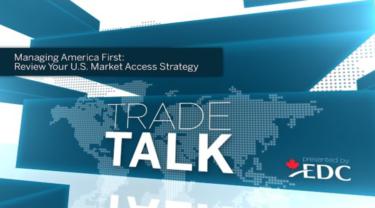Asked for an example of a company that has successfully run with that strategy, Tachuk chose Calgary’s Champion Pet Food.
“Champion had always done an amazing job of accessing the U.S. market, but it was starting to run into local and state restrictions around the distribution of their products,” Tachuk said. “So it recently set up a plant in Kentucky and, ever since, U.S. sales have skyrocketed. It partnered with a U.S.-based biotechnology company, put together a collaborative research effort and sales could double in the U.S. in the next 12 months. It’s an example of how an investment in the U.S. can really help a Canadian company succeed there.”
achuk warned that, as with any investment in a foreign market, exporters need to learn about the market and what restrictions apply.
“The best advice I would have for Canadian companies is to make sure you seek tax and accounting advice because it’s not as simple as just going and incorporating in the U.S. The tax implications can vary significantly. You really need informed expertise from accountants, lawyers and immigration consultants.”
Asked what Canadian market sectors are the most competitive when it comes to the U.S., Tachuk said the ones that succeed most often are those that seek out niches.
“When we think of technology, there are certain innovations that are leading-edge,” he said. “I think Canadian manufacturers tend to suffer a little more because we have a competitiveness challenge here, but those that are more engaged in research and development and the implementation of new technologies will be extremely competitive if they’re filling a niche that’s in demand.”




